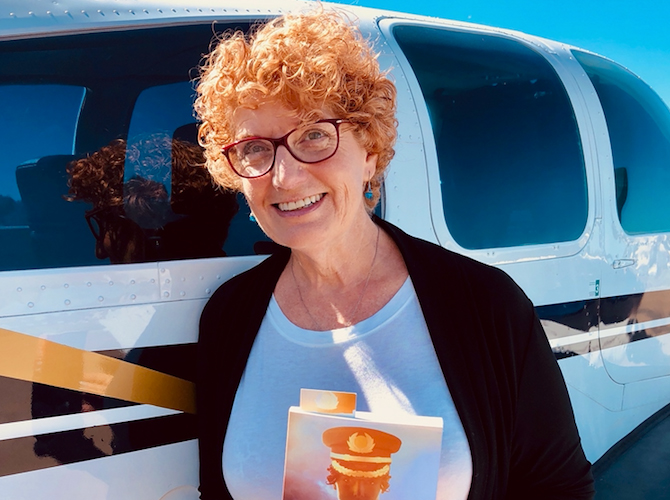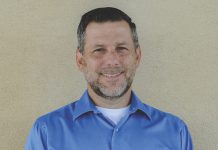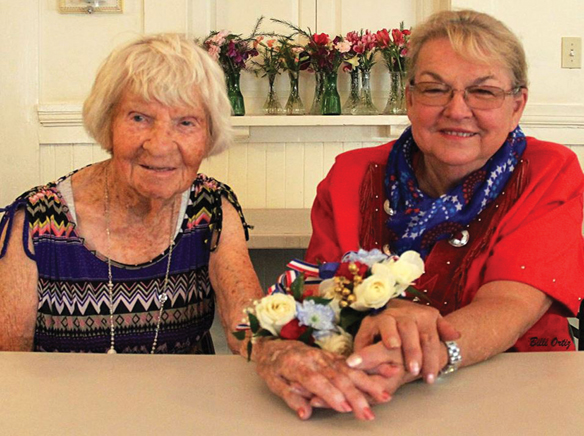If manila folder races were an Olympic sport, North Park resident Robin Kardon would have something like 16 and a half gold medals by now. She’s toted her binder all over the world for 20-plus years, with the word “Book” as the sole indicator of the contents.
But the word, of course, is not the thing, any more than “Book” is a reflection of her hard-won accomplishment in a male-dominated field — or the warrior’s drive that fuels it.
If manila folder races were an Olympic sport, North Park resident Robin Kardon would have something like 16 and a half gold medals by now. She’s toted her binder all over the world for 20-plus years, with the word “Book” as the sole indicator of the contents.
But the word, of course, is not the thing, any more than “Book” is a reflection of her hard-won accomplishment in a male-dominated field — or the warrior’s drive that fuels it.
“It is certainly the most well-traveled folder you’re likely to find,” Kardon says from the lobby of the Golden State Flying Club. El Cajon’s second home for the sky-minded has suddenly morphed into a book klatsch headquarters, with Kardon flanked by North El Cajon’s Gillespie Field as discussion about her novel gets underway.
“Flygirl,” a self-published work set for release in January, centers on the fortunes of Tris Miles, who confronts and survives the pilot profession’s darker elements as fueled by her male colleagues.
The 1990s, it turns out, weren’t particularly friendly to women who sought an airline captaincy in the male-saturated trade — or at least they weren’t very nice to Tris, whose quest erupts into a daily horror amid the consequences of a deadly mistake.
The 294-page story, based on Kardon’s experiences, revolves around Tris’ resilience aboard a crippled plane and the newfound leadership that would color it.
A free release party is planned for Sunday, Jan. 13 at 4:30 p.m. at San Diego Writers Ink, 2730 Historic Decatur Rd., suite 202 at the NTC Promenade in Point Loma.
Kardon, 59, is everybody’s zestful best friend, who’s found her home at altitude — she acknowledges feeling “landlocked” if she doesn’t live near an airport. North Park, after all, isn’t that far from the flying club and its East County Flight School, whose 240 training planes navigate air space above 1960 Joe Crosson Drive.
Beyond that, Kardon says, “I can sit in my backyard and watch planes approach Lindbergh. It’s very important to me.”
The New York native has great stories about wanting to be an astronaut and a sports writer, her undergrad journalism studies at New York University, her law degree from the American University and her opt into aviation following a ten-year litigation career she never really liked.
Aviation was a gift from God, she seems to say, especially amid her welcome from Gillespie personnel.
“When I first began flying in the early ‘90s and had no flight time at all,” she says, “I just thought of it as a hobby. And after my first flying lesson, I hopped out of the plane and asked my flight instructor, ‘Do people get paid for this?’ He said they sure do, and that’s when it occurred to me that flying would be a great alternative to practicing law.”
Today, she holds an FAA airline pilot certificate with three captain qualifications and has flown worldwide in everything from single-engine Cessnas to the Boeing 737.
And the climate at Gillespie?
“I don’t feel out of place at all,” she says of the club. “It doesn’t matter if I’m surrounded by men or women or peacocks. It’s just a really comfortable place to be.”
Tris would enjoy no such accommodation.
Resistance and harassment would visit her daily, flanked by an unwelcome advance from a drunken colleague and, in one instance, a fellow pilot’s neglect in changing a flight plan that weighed heavily against her.
Her crewmates would conspire to thwart her goals, just as they’d turn against themselves.
Her alter-ego handsomely survived the crises — but she marvels that the #MeToo era has brought change at a glacial pace.
She referred to a recent survey by Women in Aviation International, an organization providing networking for women who seek careers in aviation and aerospace, inquiring as to the survey taker’s encounters with sexual harassment.
“In 2018?” she exclaimed. “That’s ridiculous. Sexual harassment has been around as long as the group. Women want to be recognized for what they’re capable of.”
At the same time, she says, her male counterparts weren’t always the best envoys of the profession.
“Most of the men I flew with,” she said, “were one-trick ponies. They always felt limited by their training. I never felt that way. I used to feel sad to hear that. It’s so not true. There are ways to stay in aviation without all the travel.”
But as Gillespie celebrates its 50-year anniversary, those ways speak to the traits that have attracted the nation’s nearly 7,000 female airline pilots (about 4.3 percent of the total). Weightlessness, it seems, holds an allure beyond physics.
“There’s that moment on the runway,” Kardon says, “not enough air speed to become airborne yet; then the nose wheel lifts off the ground, and then the main gear lifts off the ground, and the airplane’s suspended for an unmeasurable amount of time and then immediately starts climbing.
That moment, that second in space, is as close as I’ve ever been to weightlessness. That was it for me.”
That was also it for Tris Miles and the women who were to follow.














